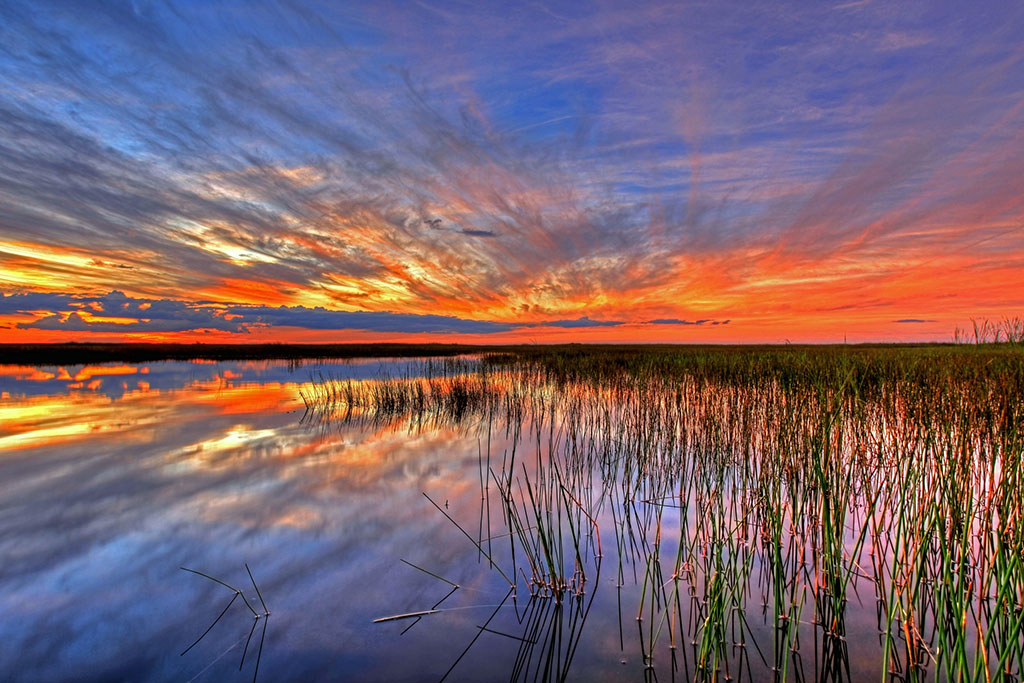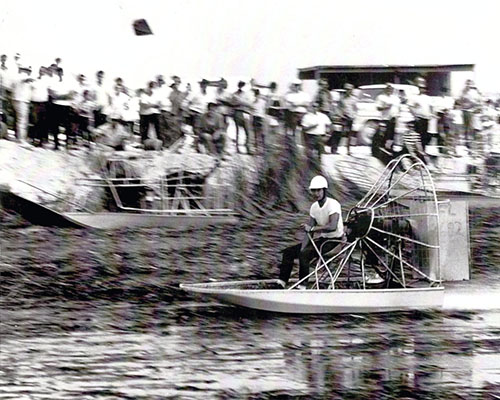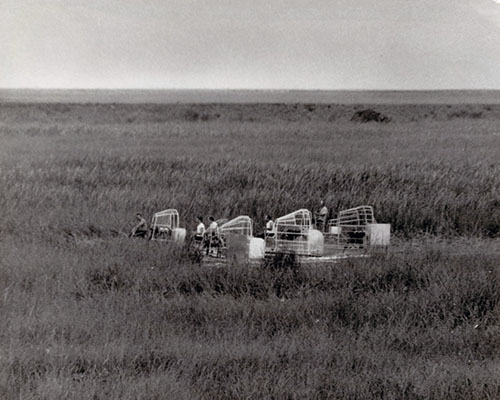 Epic rains this month quenched Florida’s drought, but sparked a tragic battle for survival in the Everglades with officials forced to choose which flora and fauna will live or die.
Epic rains this month quenched Florida’s drought, but sparked a tragic battle for survival in the Everglades with officials forced to choose which flora and fauna will live or die.
To protect the nearly extinct Cape Sable seaside sparrow, federal wildlife managers are refusing to open floodgates that would drain water from more bloated areas, including southwest of Palm Beach County. Water levels are two feet higher than what is sustainable in one conservation area, forcing animals onto inundated tree islands where some will starve.
Ron Bergeron, a 10-year commissioner with the Florida Fish and Wildlife Conservation Commission, called the situation “catastrophic,” and argues that one bird is being valued over scores of other animals.
“This could change the face of our environment, our ecology, our wildlife, our endangered species and our plant communities,” Bergeron said. “We really better pay attention to this one.”
The U.S. Fish and Wildlife Service agrees the Everglades animals are in a crisis and that some will die, but that the sparrow is the only species that could be wiped out forever.
“The sparrows are close to extinction and if something goes extinct, it doesn’t come back,” said Larry Williams, state supervisor for U.S. Fish and Wildlife in Vero Beach. “The other populations will come back.”
It’s a distinctly Florida dilemma, born of man’s reroute of the state’s natural plumbing that traditionally drained through channels around the sparrows, which nest on higher ground. The drainage diversion also causes backups in the northern Everglades and Lake Okeechobee while areas to the south, such as Florida Bay, are dying from a lack of fresh water.
On Friday, the South Florida Water Management District was granted emergency permission to back pump clean water into Lake Okeechobee to alleviate overflow in the conservation areas. Canals, including the Hillsboro Canal, on the border of Broward and Palm Beach counties, are also pumping water to the Intracoastal.
The Florida Department of Environmental Protection approved the change in water management schedules, something allowed only in emergency situations.
But even with the water pumping at maximum capacity, Williams said it will drain only a quarter-inch per week.
“This is another example of why Everglades restoration needs to happen faster,” Williams said.
In the 16-county region managed by the South Florida Water Management District, an average of 13.62 inches of rain has fallen this month, nearly seven inches above what’s normal. Bergeron said more than 20 inches has fallen in some areas of the Everglades.
Much of the rain fell in the first week of this month. By June 14, FWC restricted access to the Francis S. Taylor, Holey Land and Rotenberger wildlife management areas, citing concerns over stressed animals taking refuge on tree islands and levees.
“When you have a 100-year Act of God, the weak may die and the strong survive and that’s nature, but when you extend the duration and compound it with flood control, you put the Everglades in the emergency room,” Bergeron said.
There are between 2,000 and 3,000 endangered Cape Sable seaside sparrows left in the Everglades. Williams said if their population drops much below 300, they will likely go extinct. Sparrow nesting season ends mid-July, allowing the floodgates south to open then after July 15.
But that’s nearly three weeks deeper into Florida’s rainy season.
In the bloated water conservation areas, threatened species include the snail kite, wood storks and indigo snakes. Threatened is a lower concern level than endangered, but still means a species is likely to become endangered in the future. More common wildlife such as deer and raccoon will also suffer from the overabundance of water.
“We don’t want to seem callous, but extinction, you don’t recover from it,” Williams said.
Source: Palm Beach Post



